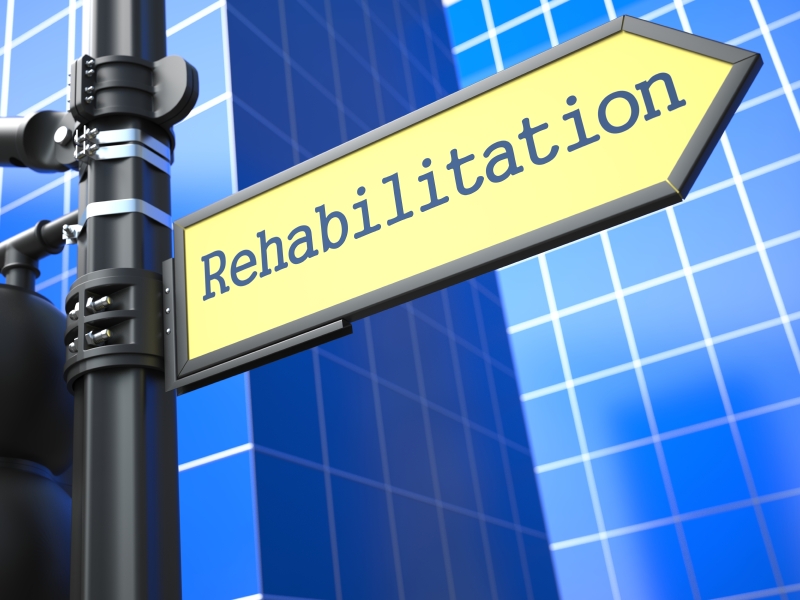
Addiction is not a failure, yet many have the perception of addiction being failure. To many people, someone who is addicted is morally challenged, emotionally immature, and weak-willed. Addiction is a sign of weakness and failure to them, rather than a disease.
This shows a fundamental lack of understanding in the general population of what addiction is, how it occurs, what it feels like, and what it means to fight it.
Thankfully, addiction is not incredibly common. Only about 6% of the US adult population struggle with substance use. That is enough to make it a nationwide issue that affects most families, but not enough to make it something most people can intimately relate to. So, to truly and effectively fight addiction, at home and in the streets, we must understand it and change the perception of addiction.
The first step to that is dispelling any false notions, such as how addiction is formed, or what being addicted says about a person’s character.
Addiction Can Happen To Anyone
Addiction does not discriminate based on willpower, mental health, intelligence, or personality. Some people are more susceptible to addiction than others, but this depends on their emotional state and the drug itself as much as it depends on their genetic predisposition (family history), and more.
People with addiction cannot be described with a single stereotype – it is a disease that affects people from all backgrounds, all statuses, throughout all ages and races, and across both genders despite the perception of addiction commonly held by the public. Highly influential lawmakers and politicians, celebrities and business people, managers, and academics. From the poorest and least successful to the richest and most gifted, addiction rears its head and wreaks havoc.
Risk factors exist. However, so do protective factors. While eliminating risk factors can go a long way in preventing addiction in families, it is not a guarantee. However, identifying risk factors and protective factors can give very important context to some families who wonder why someone they know, and love is struggling with addiction. Risk factors include:
- Emotional vulnerability and excessive stress.
- A disharmonic/dysfunctional home environment.
- Peer pressure/addicted peers.
- Age & sex (teens and men are more likely to use drugs, while women are quicker to become addicted to them).
- Risk-seeking behavior.
- Mental illness & self-medication.
- Drug use in the family/addiction history.
- Lack of opportunity/widespread oppression.
However, protective factors play a role as well. These factors alleviate the risk of addiction in children and adults:
- Supportive family members/parental involvement.
- A satisfying job & manageable stress levels.
- An interconnected community.
- Upwards social mobility.
- Better education on addiction.
- Readily-available counseling and mental healthcare.
However, while these factors tie into why someone may or may not become addicted, they do not imply that addiction is a necessary result of the above risks, or that a protective environment will completely discourage drug use. Life is complicated, and we cannot control all its aspects. What we can do is understand why things might have happened through the right perception of addiction and help those in need find the road they need to better themselves.
Addiction does not begin out of nowhere, either. It is important to address the meaning of choice in addiction.
The Difference Between Choice And Addiction
The key point towards explaining what makes addiction so heinous and why its victims deserve compassion rather than judgment, is the concept of choice and motivation, and what the brain has to do with it all.
Science has addressed that addiction stems from a reaction in the brain’s reward pathways tied to the use of certain drugs. They change the way you think, coupling the motivational processes of the brain with drug-seeking habits. This creates a loop where, instead of thinking about your passions, your future, or even your relationships to others, you relentlessly crave the next high. Nothing makes you as happy as getting the next high does, and resisting that craving is unbelievably difficult.
Yes, addiction always begins with a choice. Multiple choices, in fact. You cannot trigger an addiction with one high – but you can activate the mechanism that leads to addiction, making you much more likely to use again after the first usage of an addictive drug. It is this perception of addiction that is often misunderstood, yet still dangerous.
Generally-speaking, people choose to use drugs before they become addicted – but that can always be considered a mistake, and no human goes through life without making them. Only unlike many other mistakes, the consequences for this mistake are life-changing, and can be often avoidable with proper treatment, support, and compassion.
Just because bad choices lead to addiction does not mean that recovery is as simple as “choosing to stop.” The conscious choice of getting better is an important part of the recovery process, but it is only the first step. This perception of addiction that simply “choosing” to get better is all it takes is what makes relapses so much more damning and painful than they should be.
Relapses, which occur when a sober individual loses their sobriety and goes back to using, are part of the recovery process. They can be wakeup calls, providing those in recovery with a much-needed reminder or lesson that can help them along the way. But if approached from the point of view of failure, they can end sobriety entirely and spell someone’s doom.
Addiction itself is the punishment for making “bad choices”, even when they were simply misguided attempts at escaping from some other pain, or to fit in. But once addiction begins, choice alone is not enough to do the trick. Treatment, on the other hand, can work wonders. If people choose to get help.
The Perception Of Addiction Starts At Home
Addiction is a widespread issue, touching people in all walks of life across the country. But individually, it is best if we put our focus on our families and communities, doing what we can to make things better and change the perception of addiction. If you have a family member in rehab, or in recovery in general, then be sure to communicate with treatment centers to determine how best to help them.
If you have been sober for a while, you might find it helpful to help others and support them on their journey out of addiction. By encouraging people to get help, and proving the efficacy of modern addiction treatment methods, everybody can do a little bit to help fight the issue.




